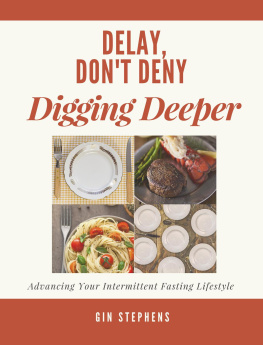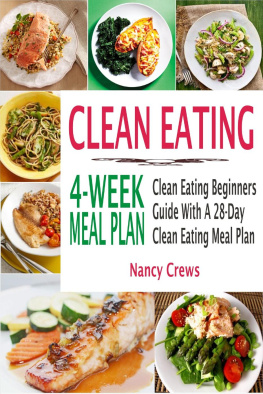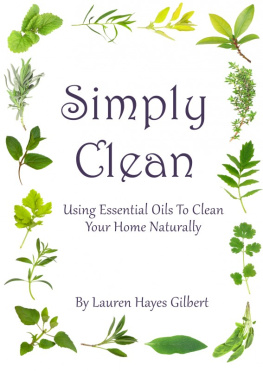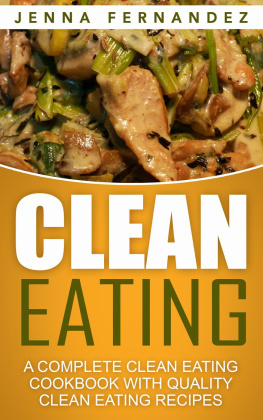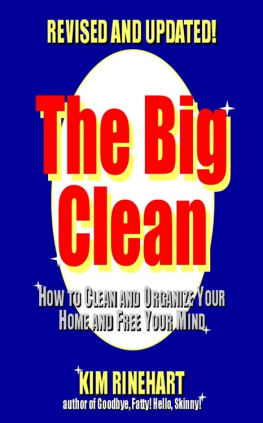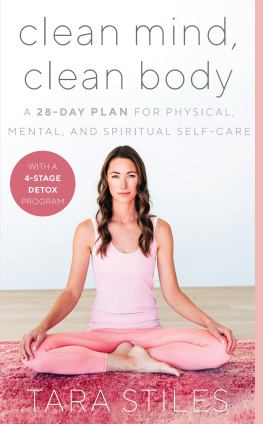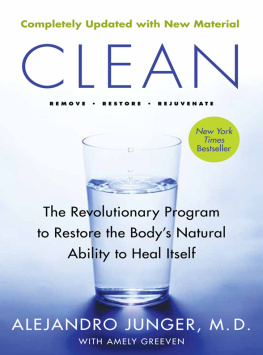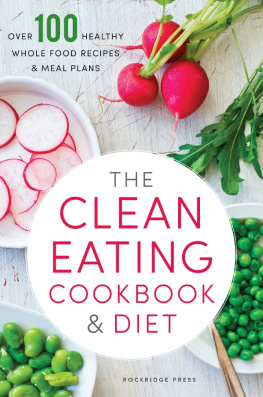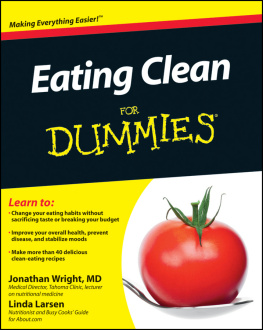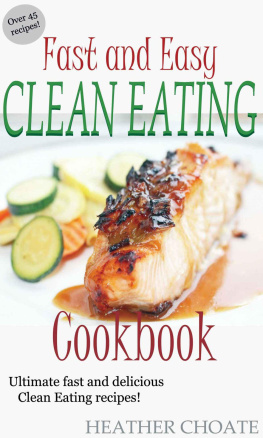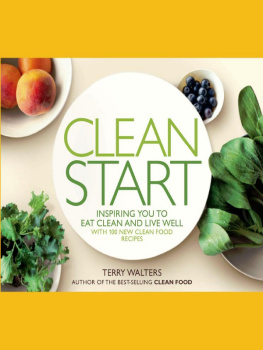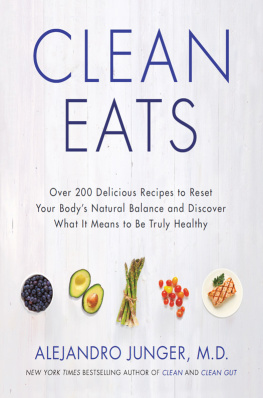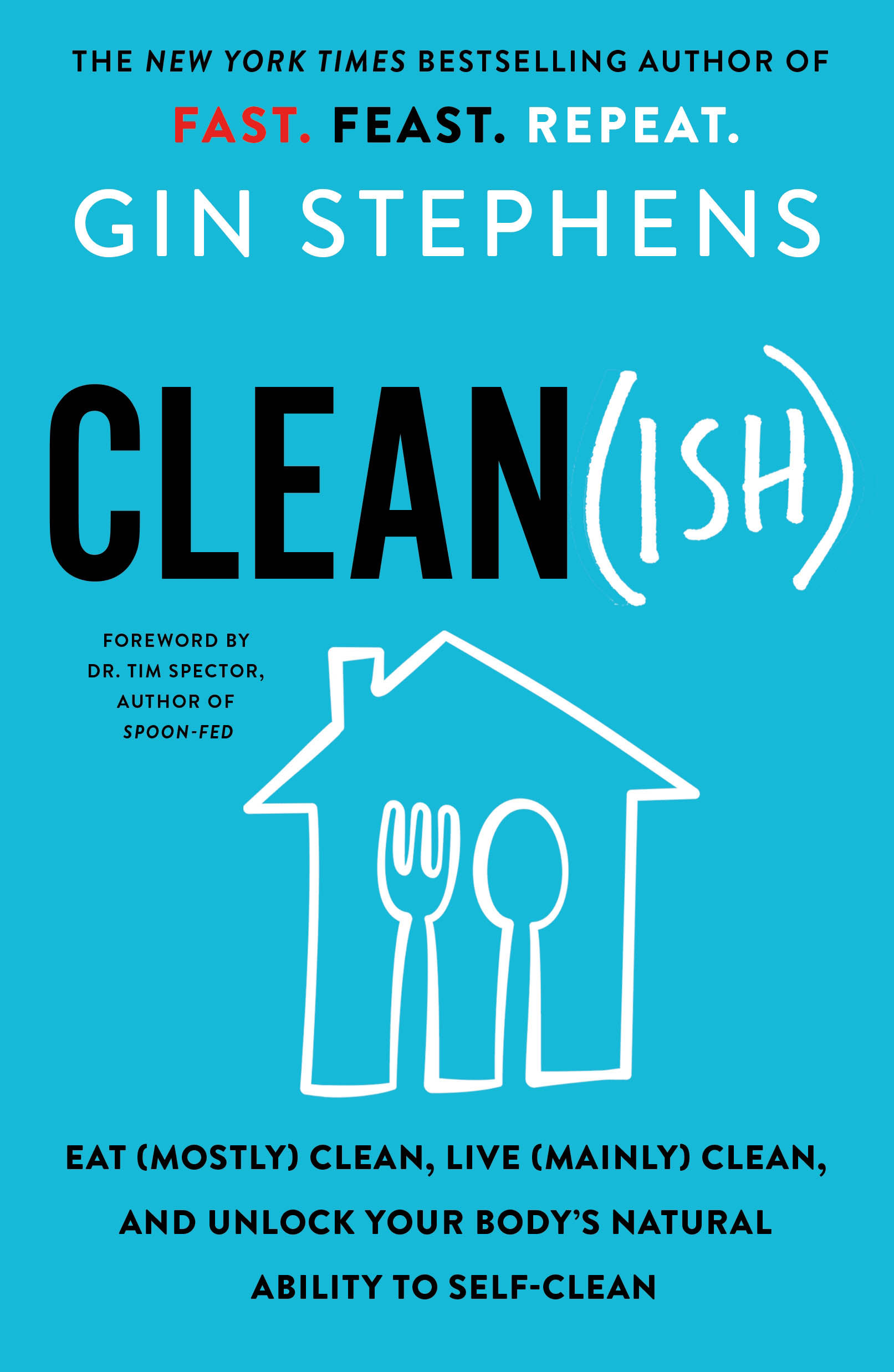Contents
Guide
Pagebreaks of the print version

The author and publisher have provided this e-book to you for your personal use only. You may not make this e-book publicly available in any way. Copyright infringement is against the law. If you believe the copy of this e-book you are reading infringes on the authors copyright, please notify the publisher at: us.macmillanusa.com/piracy.
We all want to improve our health so we can age well, prevent disease, and feel good in our bodies and maybe even lose a few pounds. To do so, most of us have tried to clean up our diets and our lives, but its hard to know where to start or how far we really need to go. In my New York Times bestseller Fast. Feast. Repeat., I taught you how to fast (completely) clean as part of an intermittent fasting lifestyle.
Now, whether youre an intermittent faster or not, I want to show you how to become clean(ish) where it counts: eat (mostly) clean and live (mainly) clean as you unlock your bodys natural ability to self-clean. Instead of aiming for perfection (which is impossible) or changing everything at once (which is hard and never leads to lasting change), youll cut through the confusion, lose the fear, and embrace the freedom that comes from becoming clean(ish). As you learn how to lower your toxic load through small changes, smart swaps, and simple solutions, youll breathe a (clean) sigh of relief and embrace your own personal evolution toward becoming clean(ish).
Why get clean(ish)? As a part of my personal health and wellness journey, I have gradually cleaned up what I eat based on how foods make me feel, and I have discovered that the better my nutritional choices, the better I feel. Feeling good is a powerful motivator, indeed! Soon, the changes I was making to how I was eating began to carry over into other aspects of my life. The more I learned, the more changes I made along the way. Im confident that each change is having a lasting impact on my overall health and wellness.
Clean(ish) means that we develop a focus on real foods and a healthier home environment that is free of obvious toxins, yet without becoming overly dogmatic or fixated on an unattainable level of perfection. By living clean(ish), we can focus our efforts where it matters while still living an enjoyable lifestyle. The ish makes it doable.
I want to warn you ahead of time: after reading the first few chapters, you may be a little bit (or maybe even a lot) angry. How did we get into this mess? What can we do about it?
Lets come together as citizens of the world to insist that we have cleaner and safer foods, personal care products, and household cleaners, as well as a cleaner and safer environment in general. Becoming clean(ish) doesnt just help us individually, but it can help us all.
Clean(ish) living is not about partisan politics, but you may feel like getting a little vocal after reading this book. No matter who you vote for or whichever side of the political aisle you embrace, I know we can agree that every human on earth deserves to live a healthy life. It should not be dependent upon socioeconomic status, disposable income, or zip code, either. I believe that health is our birthright, not just a political talking point. We have the power to vote with our wallets, and as we make changes to what we buy and which companies we support, the current trends toward a larger selection of cleaner and safer options will continue, and these options will become more affordable over time. Thats already happening.
One by one, we can join together to demand that we head toward a safer and cleaner future that we envision together. Our planet, our kids, and our grandkids depend on us.
But for now: lets figure out how to become clean(ish) together, using the tools we have before us today because every small change we make adds up.
A tuna and sweetcorn sandwich, orange juice, and a bag of crisps were my healthy lunch of choice for ten years whilst working at a busy teaching hospital in London. My workload left little time for thinking about food choices. If asked whether I thought my lifestyle and diet were good, I would have said yes. It was only after a six-hour climb to an Italian peak in 2011 that my health bubble burst. I developed double vision and high blood pressure due to a mini-stroke in the eye and for the first time in my life, my body started to work against me. Although I recovered, my blood pressure remained consistently high and I decided to take a closer look at my lifestyle and, in particular, my nutritional choices to improve my health. This journey into the science of food changed my views on what good nutrition was.
One of the most important, but still often ignored, health findings of the last decade is the realization that the trillions of microbes in our gut have a vital function for our health. They are mainly good guys, are essential for digesting food, control our metabolism and the calories we burn, provide vital vitamins and enzymes, and keep our immune system happy. These microbes are also unique and highly individual to each and every one of us, providing our own personal chemical factories. The higher the microbial diversity, the more the ratio of beneficial microbes and the higher the correlation with good health.
I helped fund the nutritional science company ZOE, which is based in Boston and London, in 2017. ZOE was built on the power of gut microbes and personalized nutrition. But before we could offer advice, we needed to collect data. We set up a study called PREDICT, which is deemed the largest and most innovative nutrition study to date. Our research showed that each of us, even identical twins, have very different biological responses to the same food. We also found that the microbes in our gut play a unique role. As these microbes are essential for our health, making and having access to good nutritional choices are vital so we can keep both ourselves and our microbes healthy. After doing the ZOE PREDICT study I learned that my usual sandwich lunch was terrible for my metabolism and gave me large sugar spikes in my blood, and that I could avoid this stress on my body by switching to healthier alternatives and building up my gut microbes.
This is where it gets tricky. What is healthy food when so many products on our supermarket shelves fight to convince us with their low-cal, low-fat, high fiber, extra vitamin, high protein stickers and labels? What they dont tell you is that these extra ingredients make you eat more, make you tired, and increase your appetite. They also dont tell you that the chemicals in these foods are bad for your gut microbes and reduce their diversity.
This is why books like Clean(ish) are so important. In the following pages, Gin Stephens thoughtfully provides insight into how most of our calories come from ultra-processed foods and how so many of the multiple ingredients used by the food industry are not even recognizable at all. So many of these foods and ingredients are full of chemicals that, at best, do nothing to nourish our bodies and, instead, are likely to fuel diabetes, obesity, heart disease, and, even according to our latest research with the ZOE Covid Study, increase our risk of developing Covid-19. A key tenet of my philosophy about food is diversity and embracing all healthy ingredients or whole food groups. This is something that


